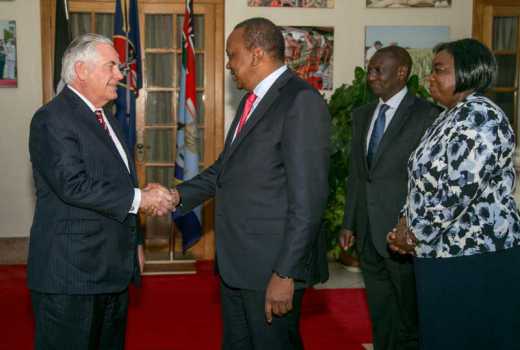×
The Standard e-Paper
Stay Informed, Even Offline

Kenya has been caught in the middle of a bare knuckle war of words between the US and China, following negative remarks made by American Secretary of State Rex Tillerson on Africa’s appetite for Chinese loans.
Tillerson’s visit to Africa has not gone down well with China, which has been increasing its grip on the continent, sparking an all-out confrontation between the world’s two richest and most powerful nations.